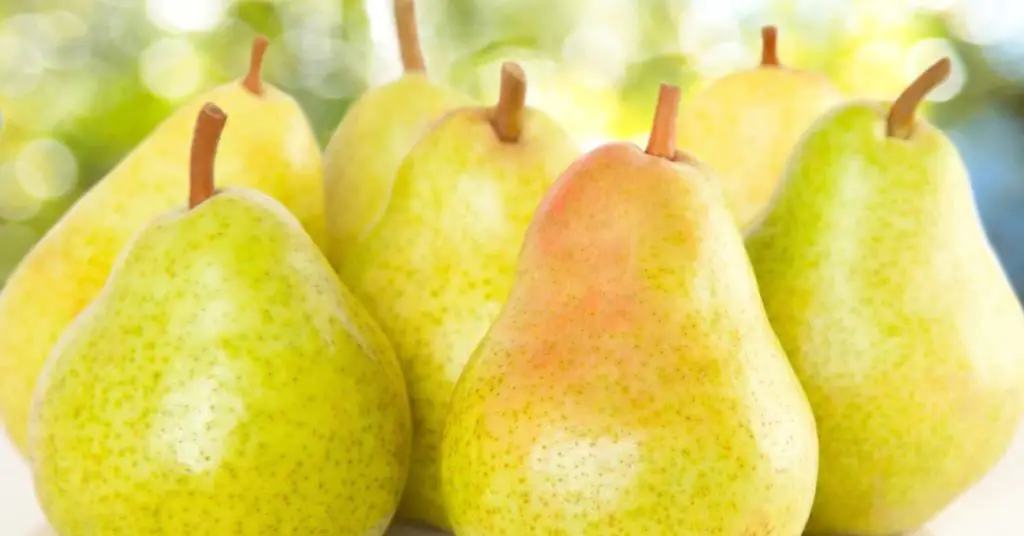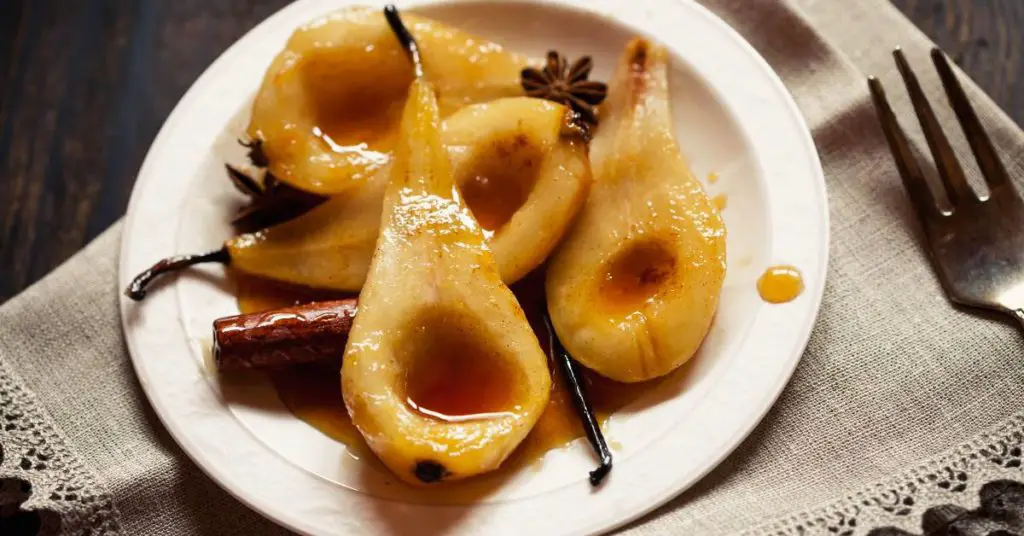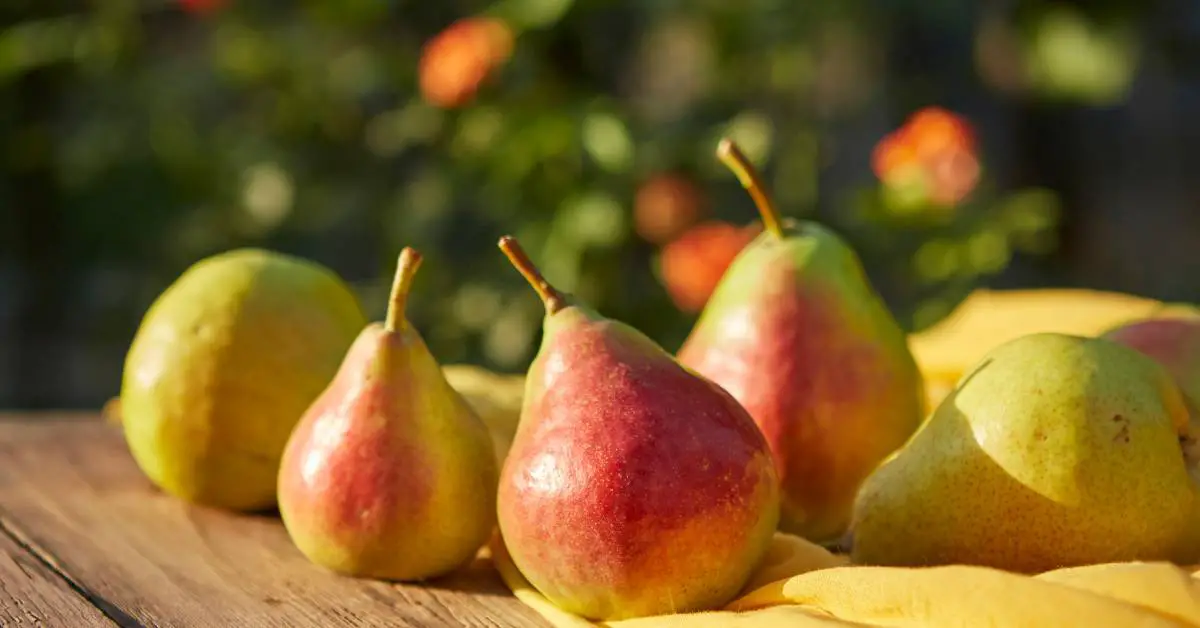Are you tired of constantly dealing with the uncomfortable symptoms of histamine intolerance? Do you feel limited in your food choices and are constantly questioning which foods are safe to eat?
If you enjoy eating fruit, you might wonder whether pears can be part of your low-histamine diet. Are pears low histamine?
If you’re a pear lover, there’s good news! If you enjoy the sweetness of pears, they might become your new best friend! Pears are hailed as a low-histamine fruit, and most people can safely eat them on a low-histamine diet.
Not only do they offer nutritional benefits, but they also have a low histamine content compared to other fruits.
So, if you’re looking for a delicious and nutritious way to manage your histamine intolerance, keep reading to find out more about the wonders of pears, their histamine content, their nutritional benefits, and how to enjoy them if you have histamine intolerance.
Understanding Histamine Intolerance
With histamine intolerance, you might sometimes feel like a ticking time bomb with your histamine intolerance, but let’s briefly break it down and understand what’s causing the explosion.
Histamine intolerance is caused by an inability of the body to break down and eliminate excess histamines in the system. This leads to a buildup of histamines, resulting in a range of symptoms, such as headaches, hives, itching, digestive issues, and more. (5)
Histamine blockers can help alleviate these symptoms by preventing the release of histamines or blocking their effects on the body. However, it’s important to address the root cause of histamine intolerance rather than relying on blockers.
Some common causes include gut dysbiosis (6), genetic mutations affecting DAO enzymes (which help break down histamines), and chronic stress. Additionally, consuming high amounts of histamine-rich foods can exacerbate symptoms.
Detoxification strategies such as reducing exposure to toxins and supporting liver function can also help improve tolerance levels over time.

Are Pears Low Histamine?
To manage histamine levels in your diet, you’ll need to be mindful of the foods you eat. As fruits are an essential part of a healthy diet, it’s good to know which ones are low in histamine and are unlikely to trigger histamine intolerance symptoms.
Are pears low histamine? Fortunately, pears that aren’t overripe are a tasty and nutritious option if you suffer from histamine intolerance symptoms as they have little or no histamine. They pack a punch in terms of vitamins and minerals that can help keep you on track towards a healthier lifestyle like a ray of sunshine breaking through the clouds.
Ripe Pears May Contain Histamine
The best way to enjoy pears is to eat fresh ones that haven’t had time to become overly ripe and accumulate histamine. When you expose fruit to air and as it ripens, histamine-producing bacteria enter the picture and can turn your pears into histamine-producing factories.
While pears are considered low histamine compared to other fruits, ripe pears may still contain small amounts of this compound which can trigger histamine intolerance symptoms. Therefore, be cautious when consuming this fruit and avoid consuming overripe pears.
The best way to avoid histamine production during storage is to store your pears properly. Place them on the counter and eating them just under peak ripeness. When a pear starts to ripen, it’s best to toss it, as it may have accumulated histamine during the ripening process.
If you can’t eat fresh pears right away, freeze them. Freezing stops the production of histamine.
Health and Nutritional Benefits of Low-Histamine Pears
Did you know that people have used pears as a part of folk medicine for over two millennia? And they’re an excellent source of nutrients.
Pears are low in calories but high in fiber, making them a nutrient-dense snack for weight watchers looking to shed pounds. They’re also rich in vitamin C, K, copper, and potassium, which aid in maintaining healthy bones, skin, and blood pressure.
These juicy fruits are packed with a treasure trove of active compounds like flavonoids, (2) phenolic acids, and triterpenoids, with the peels holding the highest concentration of these antioxidant and anti-inflammatory wonders(1)
Research has uncovered a wealth of fascinating effects that pears can have on our well-being. They possess anti-diabetic properties, helping to regulate blood sugar levels and support metabolic health. Research shows they also lower blood lipids and to support blood vessel and heart health.(3)
But wait, there’s more! Pears showcase their anti-inflammatory prowess, which may be beneficial for histamine intolerance. Studies also show they possess anti-mutagenic and anti-carcinogenic properties, fighting against harmful mutations and potentially reducing the risk of certain cancers. (more research needed)(4)
Not only that, but these remarkable fruits have detoxification superpowers, helping our bodies flush out unwanted toxins. (4)

Incorporating Pears into a Low Histamine Diet
Pears come in different varieties such as Bartlett, Bosc, Anjou, Comice, and Seckel. Each variety has its unique taste profile and texture that makes them perfect for salads or desserts. These varieties are all suitable, as long as they’re not overripe.
Avoid dried pears, as they may contain sulfur dioxide, a type of preservative that some people are sensitive to.
One way to use pears in low histamine recipes is by making a refreshing salad with mixed greens, sliced pears, and a simple dressing made of olive oil and balsamic vinegar.
You can also add diced pears to smoothies or bake them with cinnamon for a sweet treat. You can enjoy them fresh or use them in a variety of pear recipes like salads, smoothies or grilled with a little honey and low-histamine herbs and spices.
By being mindful of pear seasonality, storage methods, and incorporating them creatively into your meals, you can enjoy this delicious fruit without worrying about allergic reactions.
Key Takeaways
- Pears are a low histamine fruit that can be incorporated into a low histamine diet.
- High amounts of histamine-rich foods can worsen symptoms of histamine intolerance.
- Pears have minimal histamine content and are rich in fiber, vitamin C, K, copper, and potassium.
- Pears are also high in antioxidants and compounds with anti-inflammatory activity.
- Store your pears correctly to maintain freshness and reduce histamine.
- Avoid dried pears.
- Keep a food diary, so you’ll know how your body responds to pears.
Conclusion
Are pears low histamine? If they’re not too ripe, they are. You’ve learned that pears aren’t only delicious, but they can also be a great addition to your low histamine diet.
By understanding histamine intolerance and the importance of avoiding high histamine foods, you can better manage your symptoms and improve your overall health.
So, next time you’re looking for a tasty snack or ingredient for your meal, consider adding juicy pears to the mix. Your taste buds and body will thank you!
But don’t eat pears that have ripened to the point that they’re soft or ones that have brown spots. They may have accumulated more histamine through the ripening process. Now, discover other types of low-histamine fruit.
References:
- A review of pears (Pyrus spp.), ancient functional food for modern times. (2023). Retrieved 10 June 2023, from https://www.ncbi.nlm.nih.gov/pmc/articles/PMC8409479/
- Li X, Gao WY, Huang LJ, Zhang JY, Guo XH. Antioxidant and antiinflammation capacities of some pear cultivars. J Food Sci. 2011 Sep;76(7):C985-90. doi: 10.1111/j.1750-3841.2011.02302.x. Epub 2011 Aug 8. PMID: 21824135.
- Reiland H, Slavin J. Systematic Review of Pears and Health. Nutr Today. 2015 Nov;50(6):301-305. doi: 10.1097/NT.0000000000000112. Epub 2015 Nov 23. PMID: 26663955; PMCID: PMC4657810.
- Hong SY, Lansky E, Kang SS, Yang M. A review of pears (Pyrus spp.), ancient functional food for modern times. BMC Complement Med Ther. 2021 Sep 1;21(1):219. doi: 10.1186/s12906-021-03392-1. PMID: 34470625; PMCID: PMC8409479. https://bmccomplementmedtherapies.biomedcentral.com/articles/10.1186/s12906-021-03392-1
- Comas-Basté O, Sánchez-Pérez S, Veciana-Nogués MT, Latorre-Moratalla M, Vidal-Carou MDC. Histamine Intolerance: The Current State of the Art. Biomolecules. 2020 Aug 14;10(8):1181. doi: 10.3390/biom10081181. PMID: 32824107; PMCID: PMC7463562. https://www.ncbi.nlm.nih.gov/pmc/articles/PMC7463562/
- Sánchez-Pérez S, Comas-Basté O, Duelo A, Veciana-Nogués MT, Berlanga M, Latorre-Moratalla ML, Vidal-Carou MC. Intestinal Dysbiosis in Patients with Histamine Intolerance. Nutrients. 2022 Apr 23;14(9):1774. doi: 10.3390/nu14091774. PMID: 35565742; PMCID: PMC9102523. https://pubmed.ncbi.nlm.nih.gov/35565742/


